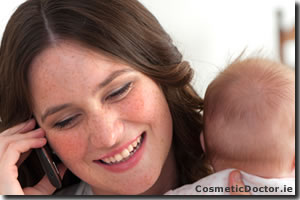Hormones fluctuate repeatedly over the course of your life; but many women don’t realise that they can affect our skin long after the oily teenage years have passed.
Some skin changes might even point to underlying health problems. Doctor-led clinic Cosmetic Doctor in Dublin have a comprehensive skin analysis process to help identify the root cause of skin issues and to determine the best treatments for you.
Oestrogen and its function
During puberty the female body starts producing sex hormones, namely oestrogens and androgens; both can dramatically affect the skin.
Oestrogen comes mainly from the ovaries, where it serves to ripen the eggs that are later shed during each menstrual cycle, usually just one egg per cycle.
In the skin, oestrogen decreases pore size; creating a smooth surface. It also helps build collagen and elastin and, helps the skin heal and maintain moisture.
Late 30s and 40s
Oestrogen peaks around age 25; drops in the 30s and more significantly in the 40s. As the overall level decreases, collagen and elastin production decreases, which causes the skin to get drier and lose its elasticity.
By the mid-to-late forties, most women are in perimenopause; the precursor to the menopause. Hormone cycles change to accommodate this new stage and some women in this age group may experience adult acne, increased facial hair and thinning scalp hair.
By the time most women reach 50, they are in menopause, and ovulation has stopped. The ovaries still produce hormones, including estrogen and testosterone, but the levels are far lower than before.
Help increase Collagen production
The main hormone that affects the skin during this stage is oestrogen and, as it fades, the skin produces less collagen and elastin.
Skin gets thinner, drier and more wrinkled, which is why treatments that help stimulate the production of collagen and elastin (like INTRAcel; micro-needling, and other collagen induction therapies) as well as an excellent diet; essential fatty acids; sufficient hydration and a great moisturiser can really make a difference in the tone; texture and appearance of the skin.
For more information call Cosmetic Doctor in Dublin on 01 685 3100.


